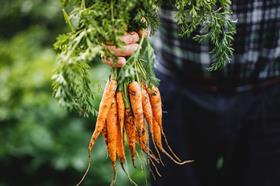
The European Food Safety Authority (EFSA) has published its latest annual report on pesticide residues in food, covering more than 88,000 food samples collected in the EU during 2020.
The results show that 94.9 per cent of samples fell within legally permitted levels. For the subset of 12,077 samples analysed as part of the EU-coordinated control programme (EU MACP), 98.2 per cent were found to be within legal limits.
The EU MACP analyses samples randomly collected from 12 food products – for 2020 these were carrots, cauliflowers, kiwifruit, onions, oranges, pears, potatoes, dried beans, brown rice, rye grain, bovine liver and poultry fat.
Of those samples analysed in the coordinated programme, 68.5 per cent were found to be free of quantifiable levels of residues; 29.7 per cent contained one or more residues in concentrations below or equal to permitted levels; 1.7 per cent contained residues exceeding the legal maximum, of which 0.9 per cent were non-compliant.
'In addition to the harmonised and comparable data collected under the coordinated programme, EFSA’s report equally includes data collected as part of the national control activities carried out by individual EU Member States, Norway and Iceland,' the EFSA announced. 'The national control programmes are risk-based, targeting products that are likely to contain pesticide residues or for which legal infringements have been identified in previous years.'
As part of its analysis, the EFSA carried out a dietary risk assessment, which suggests that the commodities analysed in 2020 are 'unlikely to pose a concern for consumer health'.
'However, a number of recommendations are proposed to increase the efficiency of European control systems,' the EFSA stated, 'thereby continuing to ensure a high level of consumer protection.'



